‘The Eye on Tokyo 2020’ is perched on an invisible drone in the ceiling of Room XYZ, at the Grand Prince Hotel, New Takanawa, in downtown Tokyo. This is where Chief Sunday Dare, Nigeria’s Minister for Youth and Sports is staying for the Olympic Games.
‘The Eye’ is looking down on the pad on which the minister is scribbling responses prompted by a ‘mind energy’ that seems to be working. It settles down to observe and to record.
Of course, this is not your usual interview.
It is, at best, a telepathic encounter between ‘The Eye’ and the Mind of a Minister. ‘The Eye’ is not interested in the technical details of the teams at the Olympic Games. It wants, simply, to take a peep into the mind of a man that came, not from sports, but from journalism, to lead Nigerian sports. How has he fared?
This is the Chitty-chat.
The Eye:
This is your first Olympics. What is your impression? How does the reality of what you imagined compare to what you now see in Tokyo?
The Mind:
Yes, my first live Olympics. But No, when it comes to covering Olympics as a journalist of close to three decades experience. I love sports generally. But to be at the Olympics LIVE is an experience like no other. Even though Covid-19 has imposed many restrictions and limitations, one can still feel the magic of the Olympics in the air. The opening ceremony which lasted five plus hours was pure delight. The spirit of the Olympic movement is alive, though slightly muted. The emphasis on participation and not on winning is written larger in the performances we have seen. The reality is that, truly, the Olympics is the biggest sporting event in the world, attracting the best athletes in close to 40 sports.
The Eye:
Take off the toga of Minister of Sports, and now see the Tokyo Olympics through the eyes of a journalist that you are. Should the Olympics have gone on, considering the fears and threats, empty terraces, and absence of fans posed by the Corona Virus?
The Mind:
With what I have seen here and what the athletes and coaches are going through, the limitations and restrictions and all the Covid-19 atmosphere, this Olympics, perhaps, could have been delayed further. Most athletes had lost over 8 months of training and months of no-competition before the Olympics. It is an Olympics without the sparks and the latitudes – everything is tight. But then it is here. It is a fitting salute to the power of sports to break free of Covid-19. In a way, it’s a triumph over Covid-19 that would rather have everyone locked in, cowed and too frightened to venture.
The absent stands with no spectators is so strange. As I criss cross one event center to another to watch Nigerian athletes compete only a handful of people are in the stands. About 5-10 Nigerians at most venues. Others can’t get in. It’s like driving a beautiful strong bus on a near- empty tank. The spectators, fans, provide fuel for the athletes from the stands.
The Eye:
The Tokyo Olympics has transformed many parts of Tokyo. What have you seen as value added to the city, the country and the world that may be worth the 15 Billion Dollars investment in the games?
The Mind:
Sporting infrastructure seem to be at their prime, weĺl maintained and functional. From the Olympic Stadium which is, of course, their national stadium to the other major sporting arenas you could perceive a country already steeped in the culture of sports development. Yes, a few constructions here and there. No barricades. Temporary sheds for
Screening and an elaborate screening and security clearance. The coordination at sporting Center’s and across the cities where the events are holding is impressive. The use of wood for most constructions even for spoons, knives and forks is impressive. Thousands of volunteers, hundreds of cars, thousands of gadgets, multiple sporting equipment and more. This could have cost the Japanese billions no doubt. Not to talk of the multi media. Of course you know Japan has always been a beautiful city. So, might be difficult to pin point all that is new.
The Eye:
With what you now know and see about Tokyo, would you back the idea of Nigeria hosting a similar event? Like the Commonwealth Games, World Cup, Africa Games?
The Mind:
Yes. I would back the idea but only upon fulfilling center conditions which are almost non-negotiable – Sports infrastructure. We need not just stadiums but multi purpose sporting arenas in about six different locations not more than two hours apart. They must be fitted with the proper sporting equipment and be fully functional. A dynamic sports development program that has the athletes at its core, one that will keep them up on a plan with grants for training and competitions.
The Federal Government will need to inject massive funds into supporting facilities along side sporting facilities and ancillary services. The private sector must be fully involved through a plan that is workable as already templated in other countries. There is a lot more. It is possible, but there is a lot of things that must be put right. It is a lot of work, commitment and funding.
The Eye:
If you knew what you now know through your personal experience, what would you do different from what you did coming to Tokyo? Was your expectation of Nigeria’s performance too high?
The Mind:
One must always enter a race with high expectations. That’s almost a rule of the thumb in life. You start a business with the expectation that you will make lots of profit. You enter school to come out with the best honors. You compete with the expectation to win. My expectation was not too High. It was rightly so placed especially backed by data in some sports where we have High flyers and world rated Athletes such as wresting and athletics and Table Tennis. Tobi Amusan. Blessing Okagbare. Ese Brume. Divine. Adegoke. I can go on and on. And the dominance of our male and female basket ball teams. Enough tonic to get pumped up. Nigeria still has great hopes at success at this Olympics.
As a country we want to win and we want to see our stars shine, but their value to us is not measured by single performances or competitions. Most of our athletes are young and debutants – experiencing Olympics for the first time. They remain committed patriots who gave their all and I have nothing but pride for their tenacity and commitment to deliver smiles to the faces on Nigerians. We have started building a new generation of Young Nigerian athletes. There is much hope.
The Eye:
What is your impression of the Olympic Village?
The Mind:
Ministers of sports are not allowed into the Village. I have gone only as far the gates and accreditation center. I try to meet most of the athletes at the competition venues.I remain in the stands to cheer them up. I also chat with them, or call them up. I hear the food is great and the atmosphere is exciting in the Games Village.
The Eye:
In a future possible scenario, would you take more competitors to the Olympics for the experience, or take only those that can win a medal?
The Mind:
I believe Nigeria should keep the plan that brought us here. Not just medal winners but as many that meet the qualification standards in the chosen sports. Experience matters at the Olympics. Most of the medal winners have been to two or more Olympics. I saw how lack of experience robbed two of our young and talented athletes medals – Elizabeth in Taekwando, Uche in Gymnastics and Esther Toko in Rowing who eventually secured a good Olympic classification. Our size this time is tight and deliberately so. Without the team sports of basketball in the male and female categories our total Athletes to the Tokyo Olympics could have been around thirty.
Nigeria, perhaps, has one of the youngest crop of athletes at the Olympics. Out of Team Nigeria athletes, 39 of them have never been to the Olympics. They are debutants, but diamonds in the rough. About 20 are under 30. Young. The building of the next generation of talented Nigerian athletes has just started. The focus should be on their effort and commitment and not just on medals.
The Eye:
Have you met any global sports megastars in Tokyo yet?
The Mind:
Yes. In Tennis, Naomi Osaka. Some in Table Tennis. But mostly, I have been concentrating on my own athletes and general logistics.
The Eye:
What would you do differently in Nigerian sports when you return to Nigeria that you picked up in Tokyo?
The Mind:
Early preparations. We need our federations to come up with programs that will keep the athletes busy, and support them consistently for training and development and not just for attending competitions. We need a National athletes development program as well as a Sports Development Fund urgently, to be run independent of Government and driven by the private sector. I will be more aggressive with engaging the private sector. We need our sports infrastructure activated and equipped. We need a cluster of multi-purpose sports centers or community sports centers to attack our young ones, like Rowe Park in lagos. We will tinker with a new National Sports Industry Policy by expanding the areas of athletes’ grants and training, government funding and commitment to sporting infrastructure development. There a few fundamentals we have walked away from when it comes to sport’s administration. We will seek a return by Gods grace.
The phone rings. It interrupts the reverie.
The Minister answers. It is obviously bad news. ‘The Eye’ hears the conversation.
Nigeria has run into turbulent weather at the Olympic Games. 10 Nigerian athletes at the games have been disqualified from participation.
Haba, this is the eve of the start of the athletics competitions. This may be unprecedented in Olympic history. This is going to ‘kill’ the athletes concerned o.
It is not the fault of the athletes but the bungling by unidentified official(s) involved in Nigerian athletics that are either incompetent, ignorant, saboteurs, distracted, wicked, or all of the above, combined.
‘The Eye’, as quietly as it came, takes off before the storm makes a land fall.
It has work to do in its observatory high up in the skies over Tokyo 2020. This is it.
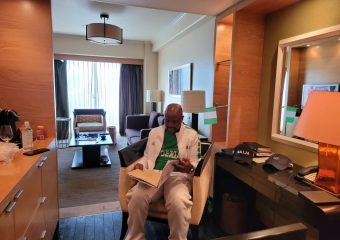
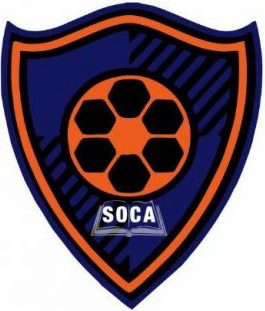
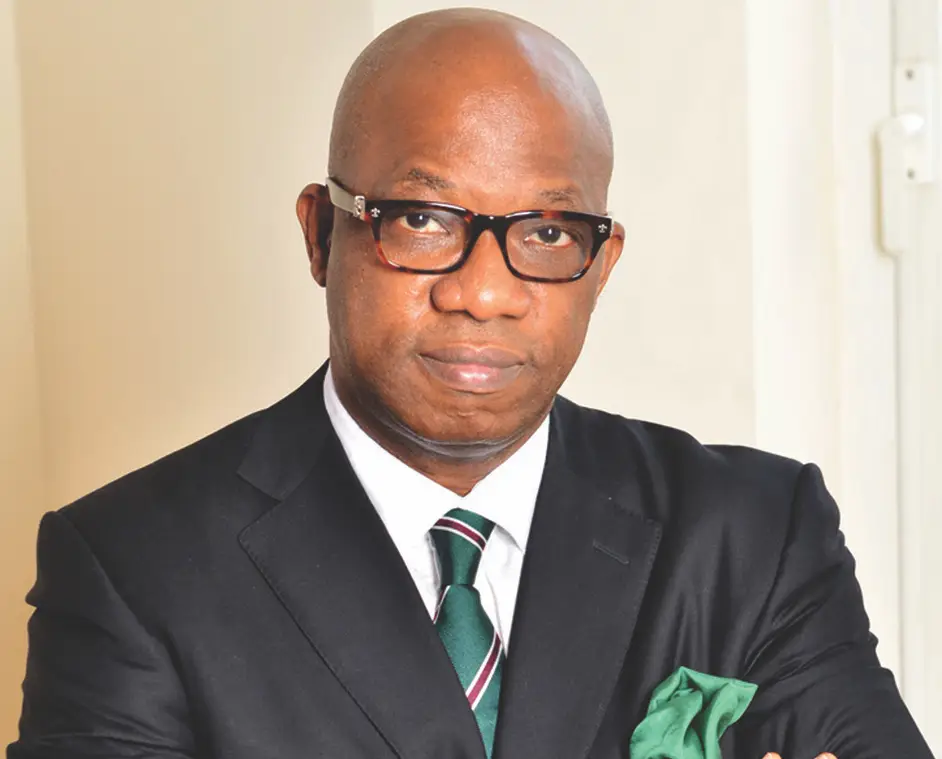

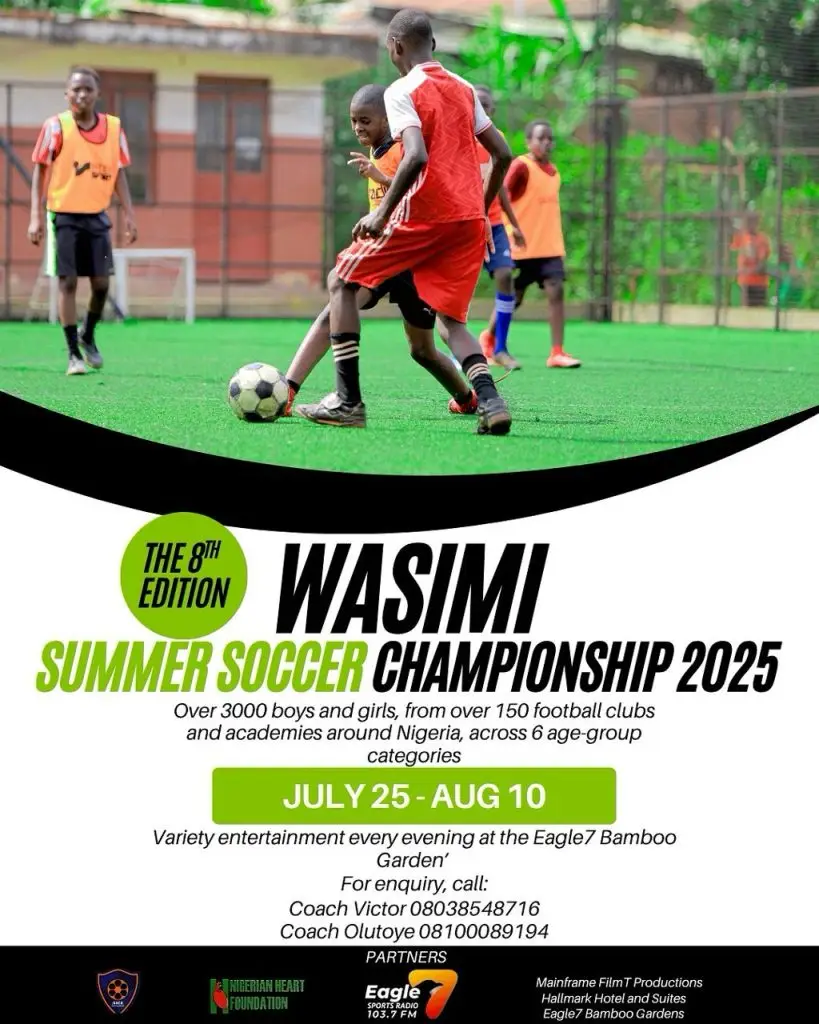
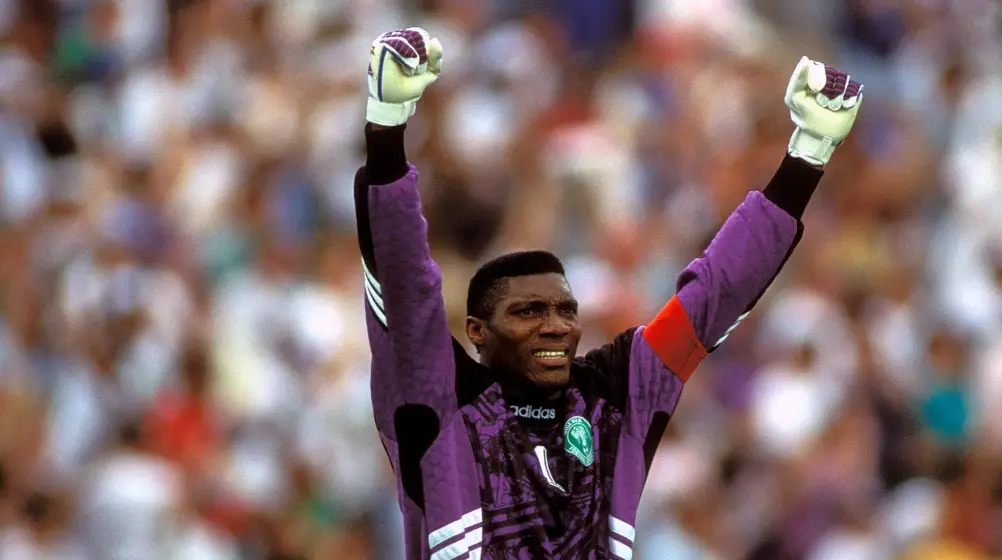



Latest Comments